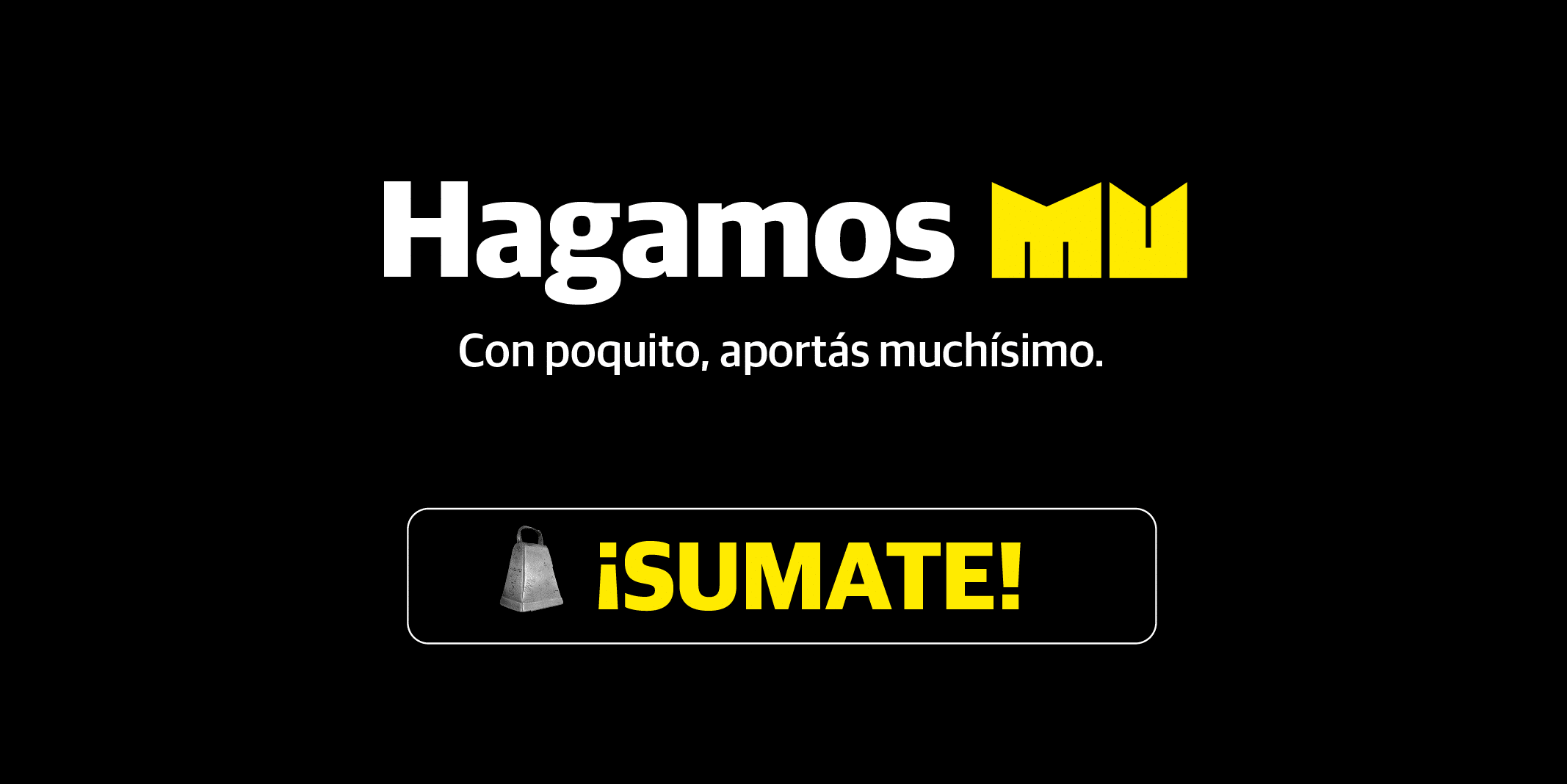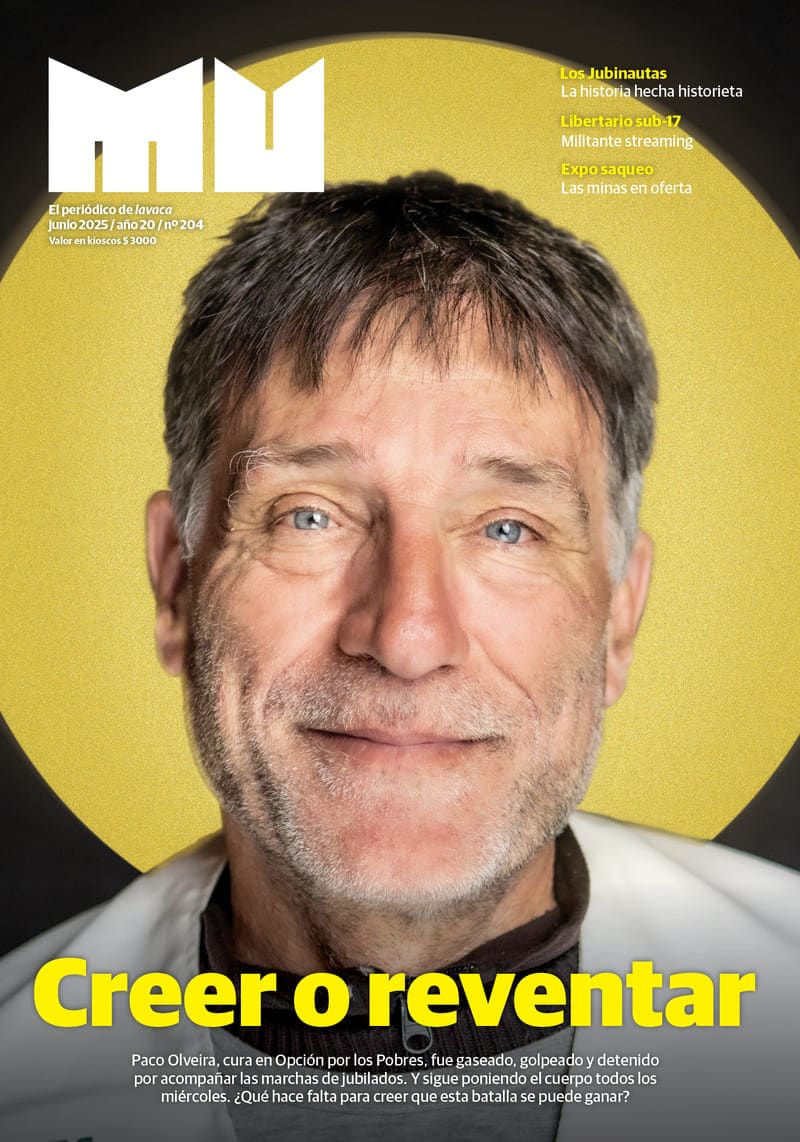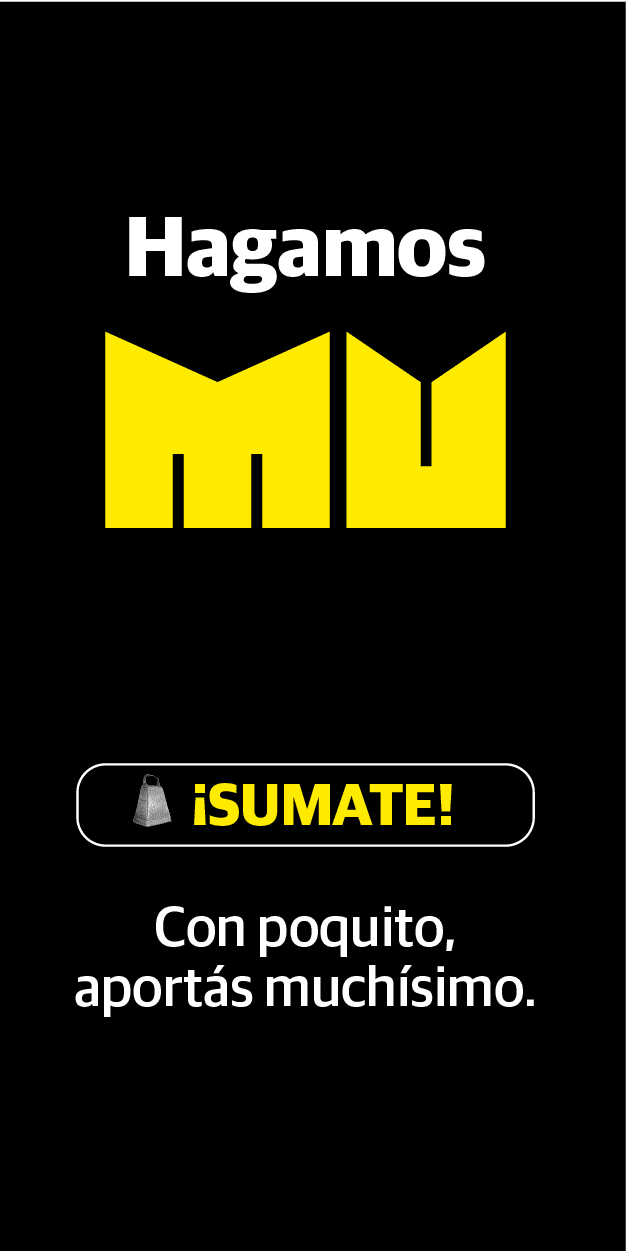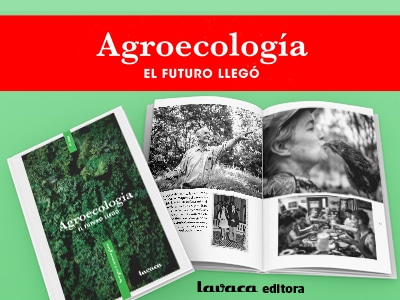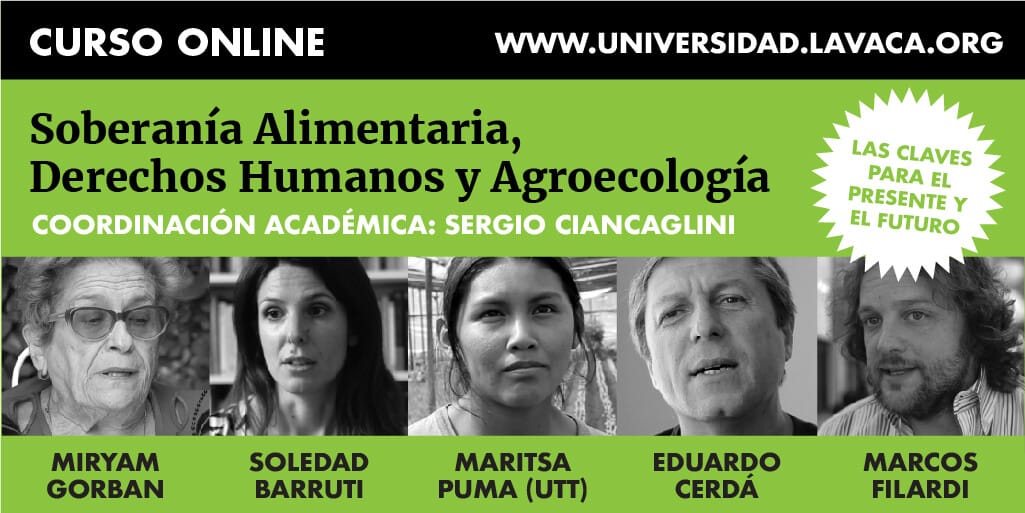Nota
El Foro, de arriba a abajo
«¿Cuál es el punto en Porto Alegre? Un diálogo entre activistas de dos generaciones». Así presentó el sitie www.opendemocracy.org esta conversación entre Susan George -fundadora de Attac y autora del Informe Lugano- con el activista argentino Ezequiel Adamovsky. Esta es la versión en inglés. Prometemos traducción en breve. (como siempre, se aceptan voluntarios).
What is the point of Porto Alegre? Activists from two generations in dialogue
The World Social Forum in Brazil’s Porto Alegre brings together campaigners from around the world in debate over alternatives to globalisation. Here, two key activists – one Argentinian, one Franco-American – discuss frankly the best way forward for a movement at a pivotal moment in its history.
openDemocracy: The agenda of the World Social Forum (WSF) in Porto Alegre this year is huge. What do you see as the priorities for the WSF, and why?
Susan George: The first Forum, in 2000, was about analysing the world situation, and I think as a movement we now largely share a common analysis. The second Forum last year was supposed to be more about making concrete proposals. As I understand it, this year is supposed to be about strategies and how we reach our goals. I hope that will be the overriding concern, although of course such clear-cut distinctions aren’t always possible; there will be new elements of analysis and new proposals. I think a huge agenda can be a good thing if it converges on strategies for change in many different areas, and if it shows that those strategies are similar whatever the goal may be of that huge agenda.
What do I feel are the priorities and why? As I have just written for the Porto Alegre paper, I think that everyone should go with one priority. Mine will be the General Agreement on Trade and Services (GATS) and the World Trade Organisation (WTO) more generally. Porto Alegre is full of such interesting people and so many interesting events that you want to be in twenty-five places at once. If you don’t decide before you get there what you want to do and who you want to do it with, you are going to be frustrated and come back feeling you didn’t really get that much accomplished.
So that’s my advice. I can say what my priorities are, I don’t want to dictate to other people what theirs should be, but I think we should all be concentrating on strategies in whatever area we feel is most important and that we know most about.
Ezequiel Adamovsky: I also think this Forum will deal mainly with strategies, and in that regard I think that one of the most important issues now is how to strengthen the network of movements that has been built up in the last few years. That will be my priority at the WSF.
But I have some concerns. The first is that the Forum risks reproducing, in the way it functions, some features of the society we want to change. There is a danger, for example, that the Forum will become unduly focused around big names or intellectuals who get most of the funding, whilst many grassroots activists can’t afford to attend and don’t get the space they deserve. I certainly don’t mean any offence to Susan personally – it is a general point about the way the Forum seems to work.
I was discussing this a few days ago with friends at the Anti-Eviction Campaign in South Africa. They are really angry about this. A major issue at the Forum will be how to build a global network for the movement. But they can’t afford to be there. Likewise, I think intellectuals should try to meet activists on an equal basis to listen to each other.
There’s a danger that the Forum will become ritualised into an annual meeting with famous intellectuals and big names on panels but without enough real exchange between activists and movements from all over the world.
Susan George: I’m not looking to be a star and I think that many people in the movement that you call the intellectuals aren’t looking to be stars either. It’s simply in my case that I have been working on similar issues for twenty-five years. I said to the WSF organisers when they invited me that the movement was really launched now and that the presence of this or that big name was really not important. I stressed exactly what Ezequiel is saying because the organisers have very little money this year because they have lost some financial support of the local government. I said that they should use whatever little they had to bring people of the kind that Ezequiel is describing.
As far as I know, almost all the northern organisations are paying their own way. Maybe they should be cutting back on some delegations in order to pay for people from organisations like the one Ezequiel mentions in South Africa to go instead. But I don’t think it’s the case that there is a single pot of money out of which some big names are being brought and then other activists aren’t.
But I certainly agree that unless we have contacts with people, as you say, on the ground, grassroots activists, and the others, who are attempting to write about and popularise this movement and to help to channel it into particular directions, I think we have the same goal. Ideally the WSF could be a place where that happens, but you seem to be saying that you don’t think it’s going to happen. I would say that it’s one of the rare places that those things can happen internationally.
Alienating radical voices and movements?
Ezequiel Adamovsky: I have noticed that many radical movements are feeling more and more uncomfortable with the WSF. There have been attempts to create alternative spaces within the Forum, and even outside it. There are some proposals to organise a sort of counter-forum. I see a danger there, and I think that at some point the Forum will have to address the fact that different groups have different approaches to social change.
To put it in simplistic terms, on the one hand, there’s the approach of most non-governmental organisations (NGOs) which want to reinforce the role of civil society as a check on the power of corporations. These NGOs want somehow to restore the balance that society has lost, and make capitalism more humane. Then, on the other hand, there is a more radical approach, shared by some of the social movements and radical collectives, which wants to strengthen the antagonistic movement against capitalism, to fight this society and build a new one.
I don’t believe that there’s any need to put a fence between these two approaches; quite the opposite, I think that we can stay together and it is productive that we meet. But I think that the WSF should provide a space in which radical movements can feel comfortable. I think that radical movements should play a larger role at the Forum than NGOs. For example, the mayor of Buenos Aires, Aníbal Ibarra, usually goes to the Forum. He’s the guy who we’re actually fighting against in the city [see, for example, information about the fight by Buenos Aires subway workers to improve working conditions – oD], so it feels really annoying that we have to share that space with him.
One of the radical groups, Peoples’ Global Action, was in two minds about whether to organise events at the Forum. They have now decided to go, but only after a lot of discussion about whether to hold their events inside or outside the Forum. Likewise, I know that the guys from Indymedia are angry at the Forum because all space for the media has been occupied by corporate media, and there is no space for the alternative or the independent.
Susan George: First, on that single point of the mayor, I’m very interested to hear Ezequiel explaining that people are feeling more and more uncomfortable. I know last year before the French elections we were also irritated that every French politician on the left who was going to run for the presidency was rushing to Porto Alegre to show off. We felt exactly the same way in France as Ezequiel and his movement feel in Buenos Aires.
Secondly, I think it’s always healthy to have people on your left, especially as you get older. Where I would stop that acceptance of having people on your left is if those groups advocate violence. We really have to keep this a peaceful pressure movement, and that pressure should come from many different quarters. Advocating violent action is utterly counterproductive.
But sometimes I simply don’t understa
nd when I hear some people talking about revolution. What do they mean? Taking state power? Well, Lula took state power and he’s hemmed in on every side by the international system. Would it be what the philosopher Paul Virilio in France called the ‘global accident’, where all the banks, all the markets, everything collapses at once? You would have huge chaos and total human misery. I think it would end in fascism.
Nevertheless, I’m absolutely prepared to listen to what Ezequiel calls radical strategies and whatever they can do to help to build a different sort of society. If it’s done in a non-violent way I think we would agree that what this movement has got to do is to create spaces where that kind of new society can be built.
I don’t think it’s quite accurate also to say that all NGOs simply want to make capitalism with a human face. I think people recognise more and more whether they are in the North or the South, and I don’t know whether you qualify my own organisation ATTAC as an NGO, but we certainly don’t think it’s enough to have capitalism which is just slightly nicer. We go a lot further than that.
Ezequiel Adamovsky: People have many different ideas of what a revolution means. The same is true with violence. What is violence to some people is not violence for other people. But what I want to stress is that I don’t think it’s enough for this movement to be what Susan calls a pressure movement. I would like this movement to help us take control of our own lives, not just to pressure the representatives to change the world in ways that we want, or to pressure the state or the corporations to change anything. We need more than that. Maybe that’s one of the issues of strategy that we need to discuss in this forum and in the future.
Avoiding the Comintern syndrome
Ezequiel Adamovsky: I have a third concern about the WSF. There’s a proposal to create a network of networks and movements. It’s a valuable idea but there are dangers. My fear is that it could become centralised, with a homogeneous voice or a visible location. This would actually lead to the destruction of existing networks, which are being built every day and getting stronger every day. To have a sort of secretariat of a network means actually the opposite of a network.
This could lead to struggles for power, which could end up destroying the existing networks. I think that the Forum should rather offer economic and technical support and resources for the network to actually happen rather than try to centralise or give the network a voice or a space, a location. For example, there is this network People’s Global Action, which is being set up at present. It came from an idea of the social movements, and they don’t have many resources at all. They don’t have offices or computers or telephones or anything like that.
So maybe a good idea would be to try to help the existing network to function rather than trying to bring some new central structure into being. I noticed that the idea of this project in the WSF is also being carried out by some of the movements and also by some of the big names.
Susan George:
Ezequiel Adamovsky: I was told that some of the people who are working on this are some of the intellectuals who usually attend the Forum, which is fine, absolutely fine. My concern is that I think this issue should be carried out by the movements themselves – and for that to happen, movements should have the chance to attend the meetings where this issue is being discussed as well as the WSF.
Susan George: I’m completely against the idea of some sort of Comintern which would centralise and try to speak for the entire movement. I think that would be a disaster. So we agree completely about that. When you speak about domesticating the existing network, I haven’t seen a move towards that on the part of groups from the North, but I know that there has been a proposal mostly coming from the Brazilians – principally the CUT and the MST – for some sort of secretariat. Many groups in the North would have more of a tendency to accept a proposal coming from those respected organisations in the South than if it came from others.
So I’m against anything that tries to centralise and I completely agree with you that it would destroy through power struggles what we’ve already built. But when you talk about giving economic and technical resources to movements which are struggling to exist, I wonder where those are going to come from.
Some people think that there’s a lot of money floating around in northern NGOs in particular. Well, there may be in some. But on the whole everything works on volunteer labour, and I think if we want to get economic and technical support for our allies, then the best way to do that is to keep working on issues such as international taxation, reducing the burden of debt, and municipal budgeting systems on the lines of Porto Alegre.
This is where the real money is. Anything else is going to be peanuts. I know People’s Global Action, I worked with them at the very beginning when they hadn’t even called themselves that yet, and I know that they can do a lot with very little. Most movements operate in that way. So let’s be more specific about how we can try to help the existing networks, how they can be identified, how the serious ones can be separated from the less serious ones and then see what we can do together to get those resources.
Organising for a different future
Susan George: I understand your concerns about centralising, but do you object to the sort of declaration that came out of Porto Alegre last year? This was the result of many movements working together. Focus on the Global South and ATTAC played quite a large role. Do you object even to that as a sort of sign of centralisation or a desire to corrupt the thought and the practice of the movement?
Ezequiel Adamovsky: No, I don’t object to any attempt of the movement to come together and to think, produce statements or design a political strategy. But a secretariat or any other form of centralisation would destroy the possibilities of a network.
My priority is to help build networks with other movements. I found that in the past the contacts we have made with groups such as the Anti-Eviction Campaign in South Africa were really productive for us in many ways. We could exchange ideas on many issues from horizontal organising to direct action with them. So the priority should be to keep on learning from other movements and sharing our own experiences with other movements.
Susan George: I understand the means perfectly, but in view of doing what?
Ezequiel Adamovsky: I can only speak about what I would like to do in my own struggles in my own place. I’m an anti-capitalist. I would like to create a completely new society, quite different from the actual one. For that I think that we need to link our struggles with the struggles of others all over the world. That’s why I say that my priority is to build relations with other groups – not only to learn and exchange experiences on a theoretical level, but also to try to organise a common strategy to change the world.
What I have in mind is what we’re actually doing in my own Asamblea every day. We are creating spaces where people can make their own decisions and can live the way they want to live. You get the same idea in many different countries and places: movements which are organised in horizontal ways, as we are, or whatever other means they are using. I think that we are all working towards the same goal, even if we don’t have the same strategy and disagree on certain issues. I think that we have that in common: the idea to create a world where you can decide by yourself.
Susan George: I share that goal. I see the world as it is now as one that is more and more dominated by a tiny minority of transnational forces, who have no intention of allowing people to make their own decisions and live as th
ey want to live, if I may quote Ezequiel.
I think there is an all-out battle against any form of democracy. I see this epitomised at the moment in the WTO, and particularly in the fight against public services against the environment and many other aspects, health, education, etc., as embodied in the GATS. So my goal is to prevent the bastards from going any further than they’ve already gone.
It’s all very well to say we’re going to create spaces where people can make their own decisions. Those decisions are more and more hemmed in by the fact that there isn’t any decent bus service, there is no decent school for your children, food prices are going up because it’s all imported, and housing is impossible inside the city because there’s no social housing, and so on. That’s why I focus on trying to challenge the bastards and get rid of them. And since I can’t do everything I’ve picked one particular corner of that now. My big fight used to be about international debt and I’ve said everything I have to say on that even though I’m still marginally part of that debate.
We must get rid of the killers who have got most of the money, most of the power, and are already in position, controlling most of the structures. For me that’s the urgent task, because without that, what Ezequiel is proposing is simply never going to work.
Ezequiel Adamovsky: I agree with what Susan just said. When I speak of creating spaces where we can live the way we want to live, I mean this in an antagonistic way. I mean that we have to challenge and to confront the power of corporations. But I think we need to do both things at the same time because it’s part of the same issue and the same struggle. You challenge and confront corporations while you are creating something different, a different space which is organised with different rules, different bases.
This is what we’re trying to do with the Asambleas in my neighbourhood of Buenos Aires. We create our own space, which is organised on horizontal principles, but at the same time we need to confront all the time the power of corporations and the state in many ways. For example, we decided to occupy an empty building which belonged to a financial corporation, and we are now in a trial. They are trying to kick us out, so we have to fight that corporation while we are trying to set up a new space, a different space in our neighbourhood. Building a world beyond capitalism always means confronting capitalism. Even if you try to ‘escape’ from them, they simply come for you. They cannot afford to let us escape and build autonomous spaces, because they live on our work, our energy.
Nota
De la idea al audio: taller de creación de podcast
Todos los jueves de agosto, presencial o virtual. Más info e inscripción en [email protected]
Taller: ¡Autogestioná tu Podcast!
De la idea al audio: taller de creación de podcast
Aprendé a crear y producir tu podcast desde cero, con herramientas concretas para llevar adelante tu proyecto de manera independiente.
¿Cómo hacer sonar una idea? Desde el concepto al formato, desde la idea al sonido. Vamos a recorrer todo el proceso: planificación, producción, grabación, edición, distribución y promoción.
Vas a poder evaluar el potencial de tu proyecto, desarrollar tu historia o propuesta, pensar el orden narrativo, trabajar la realización sonora y la gestión de contenidos en plataformas. Te compartiremos recursos y claves para que puedas diseñar tu propio podcast.
¿A quién está dirigido?
A personas que comunican, enseñan o impulsan proyectos desde el formato podcast. Tanto para quienes quieren empezar como para quienes buscan profesionalizar su práctica.
Contenidos:
- El lenguaje sonoro, sus recursos narrativos y el universo del podcast. De la idea a la forma: cómo pensar contenido y formato en conjunto. Etapas y roles en la producción.
- Producción periodística, guionado y realización sonora. Estrategias de publicación y difusión.
- Herramientas prácticas para la creación radiofónica y sonora.
Modalidad: presencial y online por Zoom
Duración: 4 encuentros de 3 horas cada uno
No se requiere experiencia previa.
Docente:
Mariano Randazzo, comunicador y realizador sonoro con más de 30 años de experiencia en radio. Trabaja en medios comunitarios, públicos y privados. Participó en más de 20 proyectos de podcast, ocupando distintos roles de producción. También es docente y capacitador.
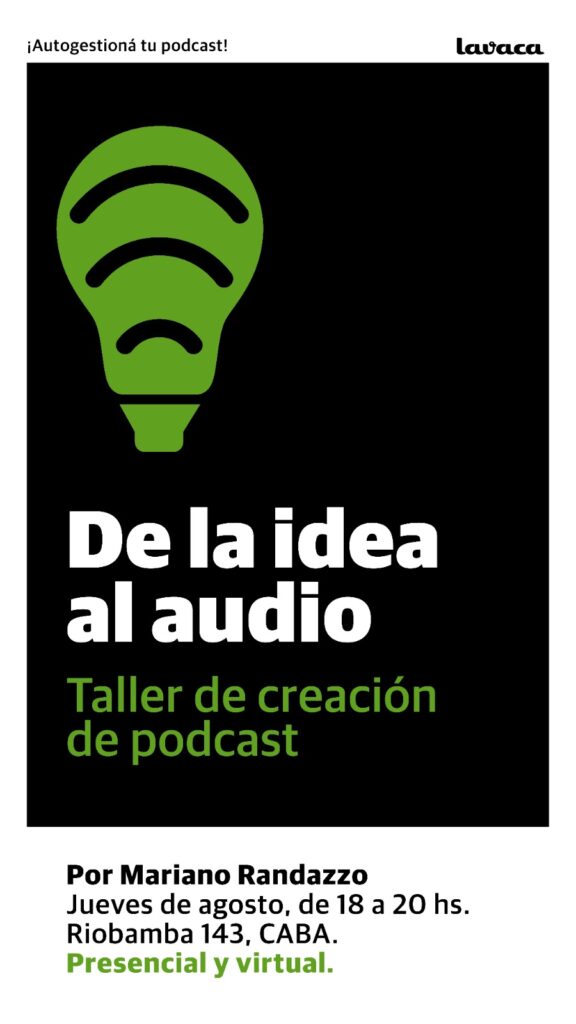
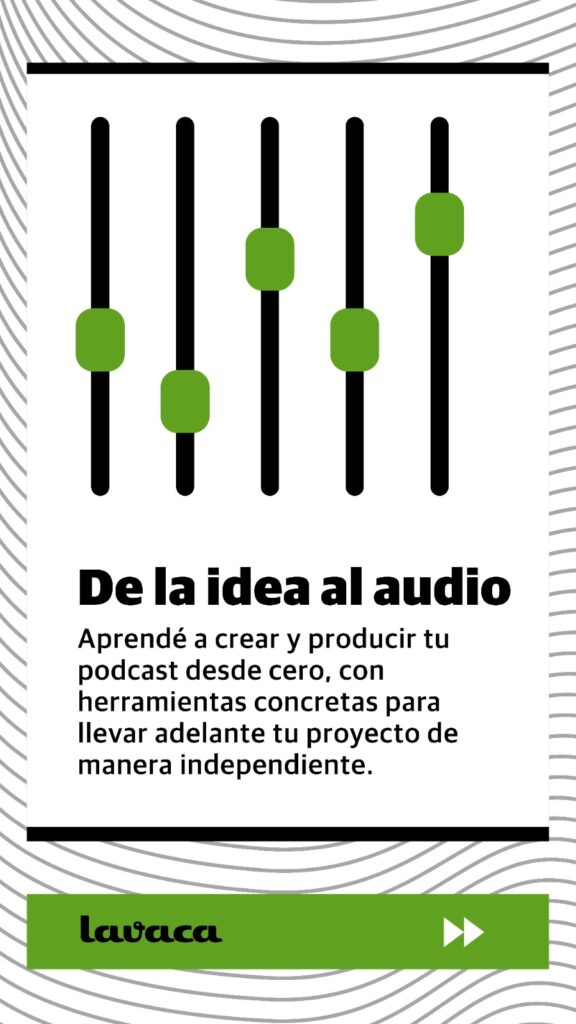
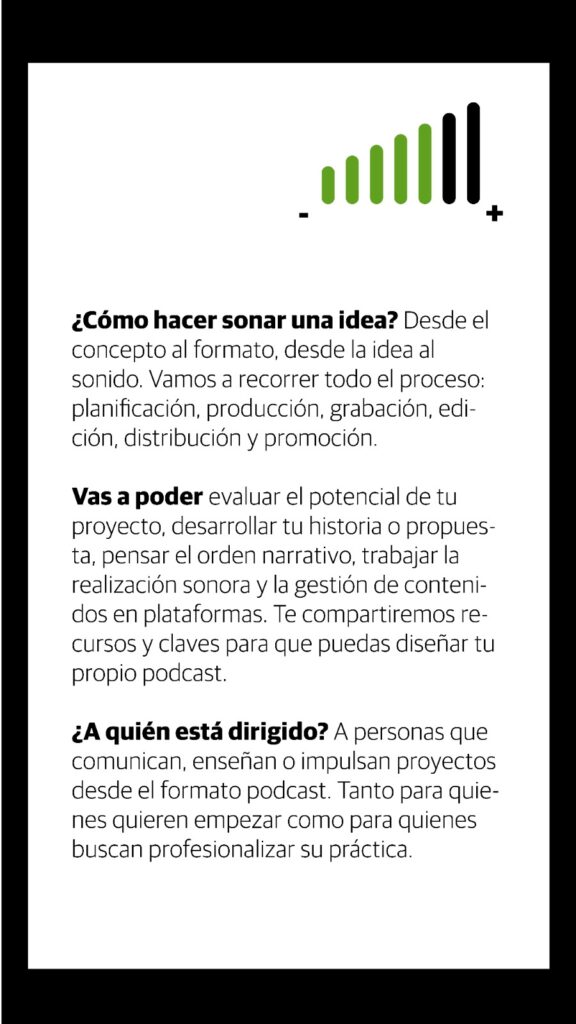
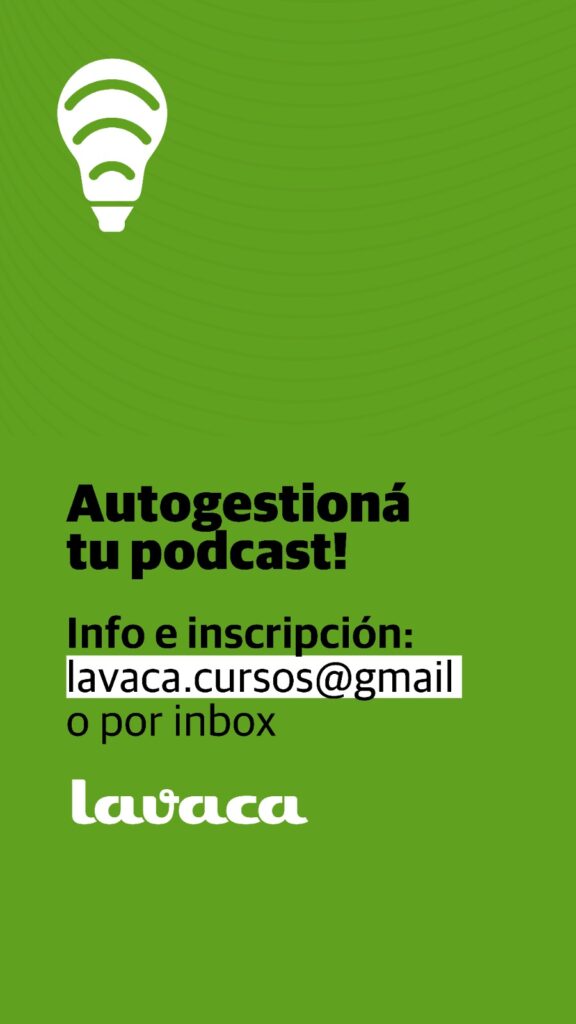
Nota
Darío y Maxi: el presente del pasado (video)
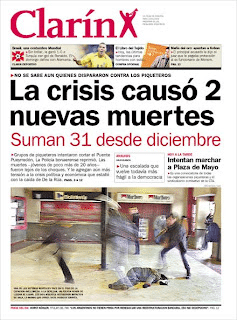
Hoy se cumplen 23 años de los asesinatos de Darío Santillán y Maximiliano Kosteki que estaban movilizándose en Puente Pueyrredón, en el municipio bonaerense de Avellaneda. No eran terroristas, sino militantes sociales y barriales que reclamaban una mejor calidad de vida para los barrios arrasados por la decadencia neoliberal que estalló en 2001 en Argentina.
Aquel gobierno, con Eduardo Duhalde en la presidencia y Felipe Solá en la gobernación de la provincia de Buenos Aires, operó a través de los medios planteando que esas muertes habían sido consecuencia de un enfrentamiento entre grupos de manifestantes (en aquel momento «piqueteros»), como suele intentar hacerlo hoy el gobierno en casos de represión de sectores sociales agredidos por las medidas económicas. Con el diario Clarín a la cabeza, los medios mintieron y distorsionaron la información. Tenía las imágenes de lo ocurrido, obtenidas por sus propios fotógrafos, pero el título de Clarín fue: “La crisis causó 2 nuevas muertes”, como si los crímenes hubieran sido responsabilidad de una entidad etérea e inasible: la crisis.
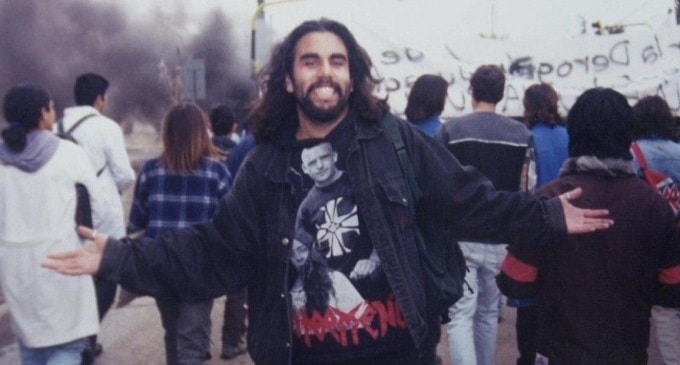
Darío Santillán.
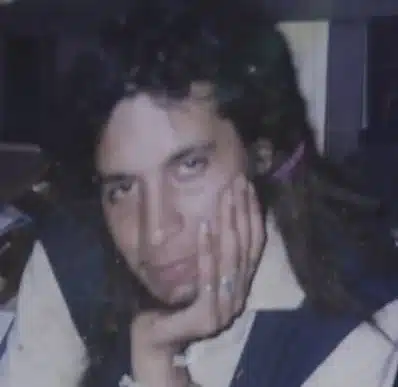
Maximiliano Kosteki
Del mismo modo suelen mentir los medios hoy.
El trabajo de los fotorreporteros fue crucial en 2002 para desenmascarar esa mentira, como también ocurre por nuestros días. Por aquel crimen fueron condenados el comisario de la bonaerense Alfredo Franchiotti y el cabo Alejandro Acosta, quien hoy goza de libertad condicional.
Siguen faltando los responsables políticos.
Toda semejanza con personajes y situaciones actuales queda a cargo del público.
Compartimos el documental La crisis causó 2 nuevas muertes, de Patricio Escobar y Damián Finvarb, de Artó Cine, que puede verse como una película de suspenso (que lo es) y resulta el mejor trabajo periodístico sobre el caso, tanto por su calidad como por el cúmulo de historias y situaciones que desnudan las metodologías represivas y mediáticas frente a los reclamos sociales.
Nota
83 días después, Pablo Grillo salió de terapia intensiva

83 días.
Pasaron 83 días desde que a Pablo Grillo le dispararon a matar un cartucho de gas lacrimógeno en la cabeza que lo dejó peleando por su vida.
83 días desde que el fotógrafo de 35 años se tomó el ferrocarril Roca, de su Remedios de Escalada a Constitución, para cubrir la marcha de jubilados del 12 de marzo.
83 días desde que entró a la guardia del Hospital Ramos Mejía, con un pronóstico durísimo: muerte cerebral y de zafar la primera operación de urgencia la noche del disparo, un desenlace en estado vegetativo.
83 días y seis intervenciones quirúrgicas.
83 días de fuerza, de lucha, de garra y de muchísimo amor, en su barrio y en todo el mundo.
83 días hasta hoy.
Son las 10 y 10 de la mañana, 83 días después, y ahí está Pablito, vivito y sonriendo, arriba de una camilla, vivito y peleándola, saliendo de terapia intensiva del Hospital Ramos Mejía para iniciar su recuperación en el Hospital de Rehabilitación Manuel Rocca, en el barrio porteño de Monte Castro.
Ahí está Pablo, con un gorro de lana de Independiente, escuchando como su gente lo vitorea y le canta: “Que vuelva Pablo al barrio, que vuelva Pablo al barrio, para seguir luchando, para seguir luchando”.
Su papá, Fabián, le acaricia la mejilla izquierda. Lo mima. Pablo sonríe, de punta a punta, muestra todos los dientes antes de que lo suban a la ambulancia. Cuando cierran la puerta de atrás su gente, emocionada, le sigue cantando, saltan, golpean la puerta para que sepa que no está solo (ya lo sabe) y que no lo estará (también lo sabe).
Su familia y sus amigos rebalsan de emoción. Se abrazan, lloran, cantan. Emi, su hermano, respira, con los ojos empapados. Dice: “Por fin llegó el día, ya está”, aunque sepa que falta un largo camino, sabe que lo peor ya pasó, y que lo peor no sucedió pese a haber estado tan (tan) cerca.
El subdirector del Ramos Mejía Juan Pablo Rossini confirma lo que ya sabíamos quienes estuvimos aquella noche del 12 de marzo en la puerta del hospital: “La gravedad fue mucho más allá de lo que decían los medios. Pablo estuvo cerca de la muerte”. Su viejo ya lloró demasiado estos casi tres meses y ahora le deja espacio a la tranquilidad. Y a la alegría: “Es increíble. Es un renacer, parimos de nuevo”.
La China, una amiga del barrio y de toda la vida, recoge el pasacalle que estuvo durante más de dos meses colgado en las rejas del Ramos Mejía exigiendo «Justicia por Pablo Grillo». Cuenta, con una tenacidad que le desborda: «Me lo llevo para colgarlo en el Rocca. No vamos a dejar de pedir justicia».
La ambulancia arranca y Pablo allá va, para continuar su rehabilitación después del cartucho de gas lanzado por la Gendarmería.
Pablo está vivo y hoy salió de terapia intensiva, 83 días después.
Esta es parte de la vida que no pudieron matar:
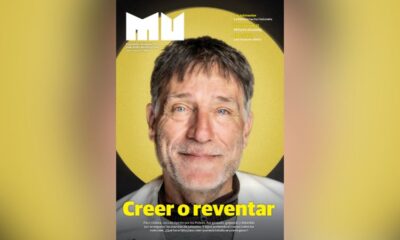
 Revista MuHace 3 semanas
Revista MuHace 3 semanasMu 204: Creer o reventar
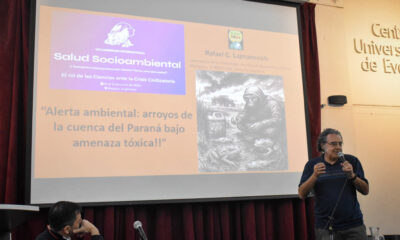
 AmbienteHace 3 semanas
AmbienteHace 3 semanasContaminación: récord histórico de agrotóxicos en el Río Paraná
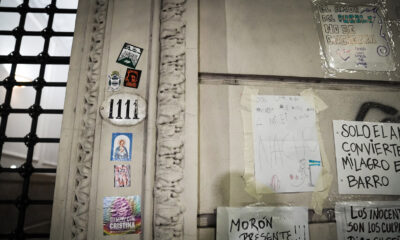
 ActualidadHace 3 semanas
ActualidadHace 3 semanasLos vecinos de Cristina
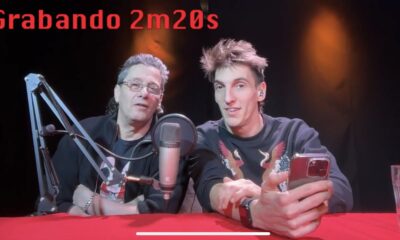
 ArtesHace 6 días
ArtesHace 6 díasVieron eso!?: magia en podcast, en vivo, y la insolente frivolidad
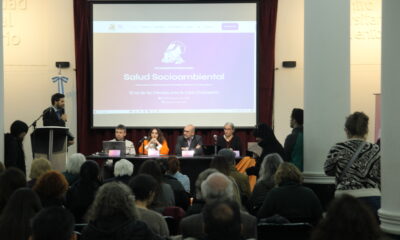
 ActualidadHace 4 semanas
ActualidadHace 4 semanasUniversidad, ciencia y comunidades: encuentro en Rosario y debate frente a la policrisis



